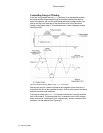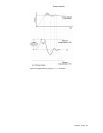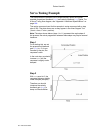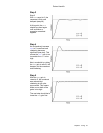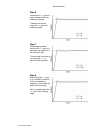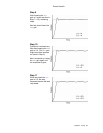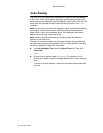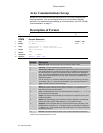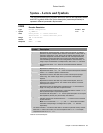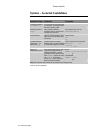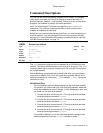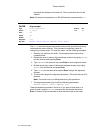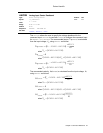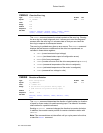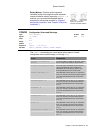
Parker Hannifin
92 Aries User Guide
Aries Communications Set-up
Before you can communicate with the Aries drive, you must configure your
terminal emulator. You can use HyperTerminal or an equivalent terminal
emulator. For information about setting up communications, see “RS-232/485
Comm
unications” on page 71.
Description of Format
1. 2. 3.
ERES
Encoder Resolution
4. Type
Encoder Configuration
Product Rev
5. Syntax
<a_>ERES<i>
Aries 1.0
6. Units
Rotary motor: i = counts/revolution
Linear motor: i = counts/electrical pitch
7. Range
2ØØ to 1Ø73741823
8. Default
4ØØØ
9. Response
ERES: <*>4ØØØ
10. See Also
DMEPIT, DMTR, TPE
Number Description
1. Mnemonic Code: This field contains the command's mnemonic code.
2. Full Name: This field contains the command's full name.
3. Valid Product & Revision: This field lists the Aries Series products and the revision of
each product when this command was incorporated or modified per the description. If
the command does not apply to that particular product, the Revision is specified as
“N/A”. All commands applicable to the standard product versions are applicable to the
OEM versions unless otherwise noted (e.g., 6250 commands are applicable to the
OEM6250 controller).
You can use the TREV command to determine which product revision you are using.
For example, if the TREV response is Aries Revision 1.0, The product revision is 1.0
4. Type: This field contains the command’s type.
5. Syntax: The proper syntax for the command is shown here. The specific parameters
associated with the command are also shown. Definitions of the parameters are
described in the Syntax sections below.
6.
Units: This field describes what unit of measurement the parameter (b, d, i, r, or t) in
the command syntax represents.
7. Range: The range of valid values that you can specify for an argument (or any other
parameter specified).
8. Default: The default setting for the command is shown in this field. A command will
perform its function with the default setting if you do not provide a value.
9. Response: Some commands allow you to check the status of the command. In the
example above, entering the ERES command by itself, you will receive the response
<*>4ØØØ. The <*> only appears for RS-485 communication, and does not appear for
RS-232 communication.
10. See Also: Commands related or similar to the command described are listed here.
Table 39 Commands-Description of Format



